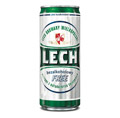Every tenth person gives bribes
More than 10 percent of people bribed last year. Most cases of bribery concern the police and the judiciary – according to a report by Transparency International (OF). Published in Berlin Global Corruption Barometer 2007 shows, that bribes were most often given by citizens of Kosovo, Cameroon and Albania. In these countries, around one third of respondents admit having paid a bribe in the past year. In the countries of the so-called. UE+, that is, the European Union and Iceland, Norway and Switzerland, to pay a bribe, primarily for medical care, it confessed 5 percentage of respondents. TI does not provide data from Poland in this column. Included in the Global Corruption Barometer 63 thousand. people in 60 countries. The report states, that bribes are paid by the poor for basic services, and this is true for rich countries as well as for poor countries. In most regions, respondents most often mentioned police officers as accepting bribes. On the other hand, in Europe, bribes were most often related to medical services. Africa is the area most affected by bribery, especially when it comes to citizens' contacts with the police and the education system. At the same time, Africans are the most optimistic about the effectiveness of anti-corruption measures.
People in North America and Europe are pessimistic about government attempts to eradicate corruption – states the report.
Worldwide, political parties are considered by 70 percent of people in favor “corrupt” the “utterly corrupt”. There are also gloomy views on the chances of eradicating corruption. Overall, more than half of the respondents in the world (54 proc) he considers, that the corruption will be even worse, while a year 2003 it only thought so 43 percent. The increase in corruption in the next three years is predicted 39 proc. Poles, its constant level – 34 proc., a 27 proc. he considers, that corruption will decrease.
Meanwhile, in the EU +, it is expected to grow 58 proc. residents, constant level – 24 proc., and decrease – 18 percent. The actions of their governments aimed at eliminating corruption are assessed as ineffective in the EU + countries 60 proc. surveyed, while in Poland – 48 percent. It considers such actions to be effective 28 proc. residents of the EU +, but only 22 proc. Poles.
On the other hand, we are more inclined to judge them as “nor effective, nor ineffective”. That's how they appreciate them 30 proc. Poles and in this respect we are similar to Swedes and Swiss, of which respectively 33 i 32 proc. is of that opinion. However, in the entire EU +, he only thinks so 12 proc. surveyed.










